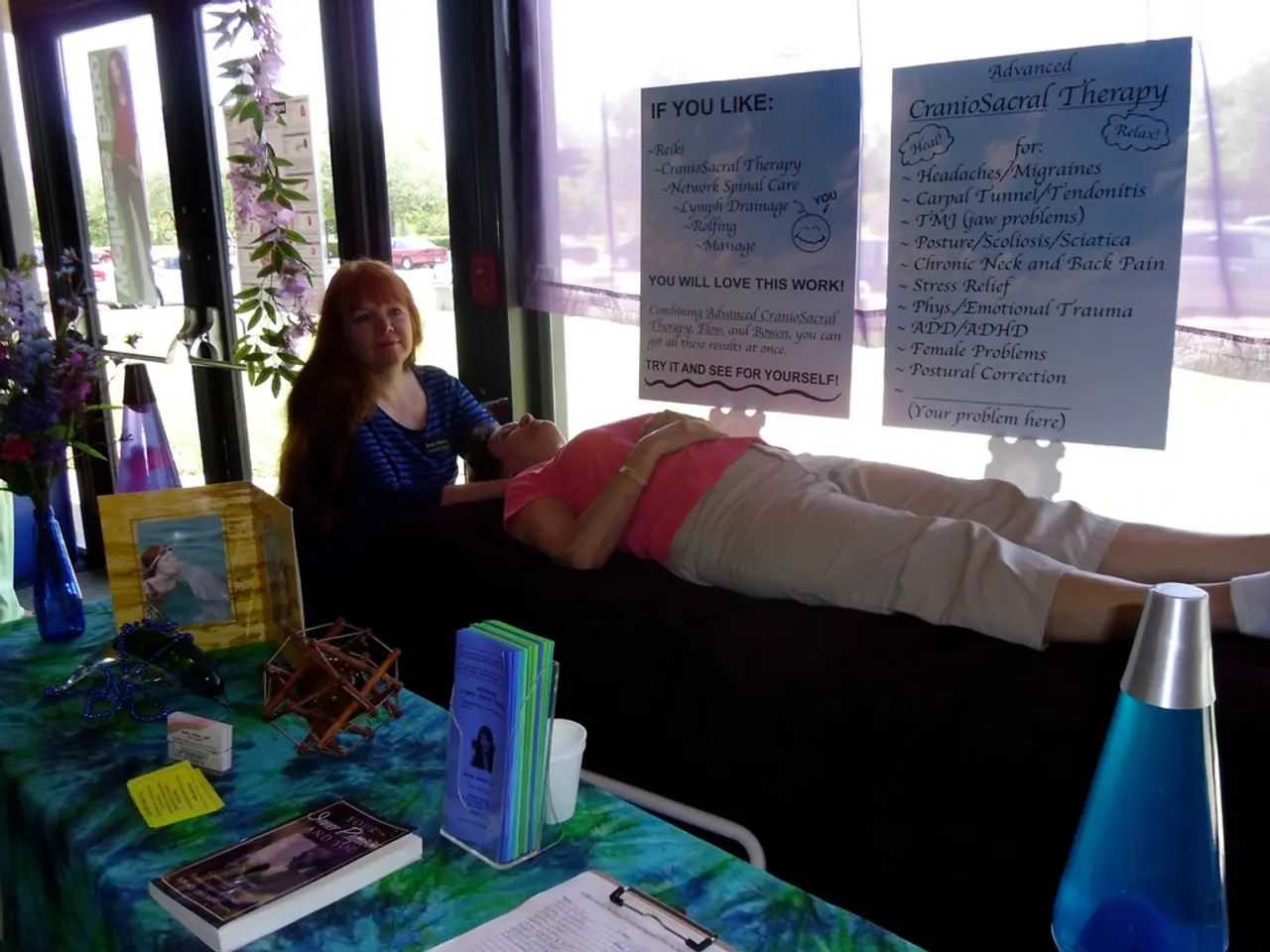Nurturing Self-Acknowledgment in Childhood Wounds: Fostering Self-Admiration for Recovery
In a world where self-love and emotional well-being are becoming increasingly important, a set of science-backed strategies have emerged to help Gen Z and Millennial women cultivate self-love and overcome childhood trauma. These strategies are tailored to the unique emotional needs and cultural contexts of these generations, focusing on self-compassion rituals, therapeutic exploration, community support, and boundary setting.
Self-Compassion Rituals
One key application is the use of self-compassion rituals. These simple, neuroscience-informed exercises, such as placing a hand over the heart and affirming self-kindness, activate caregiving brain circuits and release soothing hormones like oxytocin. This helps rebuild emotional resilience after trauma or heartbreak, and helps rewire neural pathways toward self-love rather than self-criticism [1][3].
Therapeutic Spaces
Therapy offers a structured, non-judgmental environment to uncover emotional wounds and foster a healthier self-relationship. This approach resonates strongly with younger women, who increasingly seek mental health support for deeper healing [2].
Community and Shared Humanity
Recognizing shared struggles reduces isolation common in both generations. Virtual compassion circles, where women share challenges and respond with empathy, build micro-communities of support. This fulfills the desire among Gen Z and Millennials for connection and normalization of vulnerability, boosting resilience and self-acceptance [3].
Setting Boundaries and Honest Communication
Millennial and Gen Z women often face burnout from balancing personal and social demands. Science-backed advice encourages setting micro-boundaries and communicating honestly (not defensively) with loved ones to preserve mental health. This reframes self-love as strategic and sustainable, rather than selfish, aligning with these cohorts' emphasis on mental health and work-life balance [5].
Proactive Emotional Regulation
Younger generations tend to seek knowledge about healing and develop coping mechanisms that include recognizing overwhelm and creating space for self-care [4]. This aligns with evidence-based practices emphasizing awareness and intentional action to protect emotional well-being.
Together, these strategies reflect a nuanced understanding of the socio-emotional realities for Gen Z and Millennial women—integrating neuroscience, therapy, peer support, and boundary-setting—to cultivate self-love and heal childhood trauma effectively.
In summary, the strategies shared involve mindful self-compassion exercises, therapeutic reflection on trauma, community-building through empathy, and sustainable boundary-setting—all adapted to their values of connection, authenticity, and mental health prioritization. These stepping stones in nurturing self-love and resilience encourage Gen Z and Millennial women to recognize their innate worth and lead a life true to themselves.
For those seeking professional support for trauma recovery, finding a therapist specializing in trauma and exploring individual or group therapy options is recommended. Creative expression through painting, writing, or music can function as emotional outlets and serve as substantial mood enhancers.
Research in the Journal of Happiness Studies aligns self-love with increased life satisfaction and emotional buoyancy, underscoring its pivotal role in recovery. Prioritizing self-love can empower trauma survivors to regain control and craft a life in sync with their dreams.
Embracing self-love is a perpetual voyage that can help break the shackles of self-criticism and shame, fostering healing and toughness. Distancing yourself from energy drainers or toxic relationships can help create a supportive environment for healing and growth. Engaging with friends or support groups that validate your journey can provide emotional support during the healing process. Cultivating a supportive network of people who lift you up and amplify self-love, as social support plays defense against trauma's adverse effects, is crucial.
- Guided meditation and mindfulness exercises, inspired by neuroscience, serve as self-compassion rituals that activate caregiving brain circuits and release hormones like oxytocin, rebuilding emotional resilience after trauma or heartbreak.
- Virtual empathy circles, a community-building approach, allow women to share challenges and offer support, reducing isolation common in Gen Z and Millennials and boosting resilience and self-acceptance.
- Journaling, as a creative expression, can function as an emotional outlet and serve as a substantial mood enhancer for those seeking individual trauma recovery.
- Science-backed advice encourages setting micro-boundaries and communicating honestly with loved ones to preserve mental health, aligning with the cohorts' emphasis on mental health and work-life balance.
- Engaging with women's health resources, such as mental-health focused therapy or health-and-wellness articles in journals like the Journal of Happiness Studies, can provide evidence-based strategies for self-love and the healing of childhood trauma.




